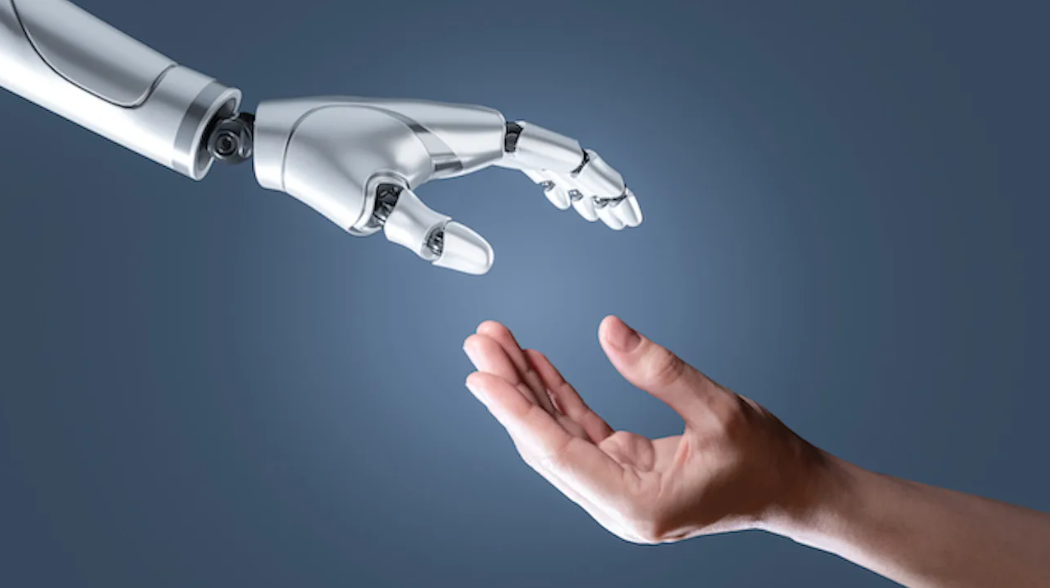Health Strategy Institute (HSI)
multidisciplinary institute of continuous transformation for
in-person health and digital health strategy
Joaquim Cardoso MSc
Chief Research and Editor — of the Health Strategy Portal;
Chief Strategy Officer (CSO) — of the Health Strategy Institute (HSI), and
Senior Advisor — for Boards and C-Level
June 22, 2023
Key Takeaways of the Report on Digital Life Changes by 2035:
Best and Most Beneficial Changes:
- 18% of experts are more excited than concerned, and 42% are equally excited and concerned about future technological changes.
Human-centered development of digital tools and systems:
- Integration of digital and physical systems, bringing smartness to various objects and organizations.
- Personal digital assistants that enhance daily lives.
Human rights:
- Digital tools shaping freedom of speech and mobilization for rights.
- Improved access to resources, effective communication, and safer lives.
Human knowledge:
- Innovations in business models, standards, and regulation.
- Revival of trusted news sources and better availability of factual information.
Human health and well-being:
- Health care revolution enhancing overall health and well-being.
- Equal attention to the needs of all individuals, prioritizing agency, safety, mental health, and privacy.
Human connections, governance, and institutions:
- Adoption of new digital standards and regulations promoting pro-social activities.
- Development of digital literacy in social and political interactions.
- Promotion of human agency, security, privacy, and data protection.
Most Harmful or Menacing Changes:
- 79% of experts are more concerned than excited or equally concerned and excited.
Future harms to human-centered development of digital tools and systems:
- Profit-driven and inadequately tested digital systems leading to inequality and compromised democracy.
Future harms to human rights:
- Threats to privacy, surveillance, deepfakes, disinformation, job loss, poverty, and human dignity.
Future harms to human knowledge:
- Loss of knowledge amidst misinformation, declining cognitive skills, and alternate realities.
- Resistance to progress due to a class of doubters.
Future harms to human health and well-being:
- Increased anxiety, depression, and social problems due to technology’s pervasive influence.
Future harms to human connections, governance, and institutions:
- Inadequate norms, regulation, and distrust in technology’s social and political impact.
- Autonomous weapons, cyberwarfare, and polarization leading to public withdrawal.
Expert Sentiments:
- 37% of experts are more concerned than excited, 18% are more excited than concerned, 2% are neither excited nor concerned, and 2% expect minimal change.
- The balance between positive and negative impacts of technology remains a significant concern for experts.

As AI Spreads, Experts Predict the Best and Worst Changes in Digital Life by 2035 — [Executive Summary]
Pew Research Institute
BY JANNA ANDERSON AND LEE RAINIE
They have deep concerns about people’s and society’s overall well-being. But they also expect great benefits in health care, scientific advances and education
Spurred by the splashy emergence of generative artificial intelligence and an array of other AI applications, experts participating in a new Pew Research Center canvassing have great expectations for digital advances across many aspects of life by 2035. They anticipate striking improvements in health care and education. They foresee a world in which wonder drugs are conceived and enabled in digital spaces; where personalized medical care gives patients precisely what they need when they need it; where people wear smart eyewear and earbuds that keep them connected to the people, things and information around them; where AI systems can nudge discourse into productive and fact-based conversations; and where progress will be made in environmental sustainability, climate action and pollution prevention.
At the same time, the experts in the new canvassing worry about the darker sides of many of the developments they celebrate. Key examples:
In sum, the experts in this canvassing noted that humans’ choices to use technologies for good or ill will change the world significantly.
These predictions emerged from a canvassing of technology innovators, developers, business and policy leaders, researchers and academics by Pew Research Center and Elon University’s Imagining the Internet Center. Some 305 responded to this query:
As you look ahead to the year 2035, what are the BEST AND MOST BENEFICIAL changes that are likely to occur by then in digital technology and humans’ use of digital systems? … What are the MOST HARMFUL OR MENACING changes likely to occur?
Many of these experts wrote long, detailed assessments describing potential opportunities and threats they see to be most likely. The full question prompt specifically encouraged them to share their thoughts about both kinds of impacts — positive and negative.
And our question invited them to think about the benefits and costs of five specific domains of life:
- Human-centered development of digital tools and systems
- Human rights
- Human knowledge
- Human health and well-being
- Human connections, governance and institutions

They were also asked to indicate how they feel about the changes they foresee.
- 42% of these experts said they are equally excited and concerned about the changes in the “humans-plus-tech” evolution they expect to see by 2035.
- 37% said they are more concerned than excited about the changes they expect.
- 18% said they are more excited than concerned about expected change.
- 2% said they are neither excited nor concerned.
- 2% said they don’t think there will be much real change by 2035.

The most harmful or menacing changes in digital life that are likely by 2035
Some 79% of the canvassed experts said they are more concerned than excited about coming technological change or equally concerned and excited.
These respondents spoke of their fears in the following categories:
The future harms to human-centered development of digital tools and systems
The experts who addressed this fear wrote about their concern that digital systems will continue to be driven by profit incentives in economics and power incentives in politics. They said this is likely to lead to data collection aimed at controlling people rather than empowering them to act freely, share ideas and protest injuries and injustices. These experts worry that ethical design will continue to be an afterthought and digital systems will continue to be released before being thoroughly tested. They believe the impact of all of this is likely to increase inequality and compromise democratic systems.
The future harms to human rights
These experts fear new threats to rights will arise as privacy becomes harder, if not impossible, to maintain. They cite surveillance advances, sophisticated bots embedded in civic spaces, the spread of deepfakes and disinformation, advanced facial recognition systems, and widening social and digital divides as looming threats. They foresee crimes and harassment spreading more widely, and the rise of new challenges to humans’ agency and security. A topmost concern is the expectation that increasingly sophisticated AI is likely to lead to the loss of jobs, resulting in a rise in poverty and the diminishment of human dignity.
The future harms to human knowledge
They fear that the best of knowledge will be lost or neglected in a sea of mis- and disinformation, that the institutions previously dedicated to informing the public will be further decimated, that basic facts will be drowned out in a sea of entertaining distractions, bald-faced lies and targeted manipulation. They worry that people’s cognitive skills will decline. In addition, they argued that “reality itself is under siege” as emerging digital tools convincingly create deceptive or alternate realities. They worry that a class of “doubters” will hold back progress.
The future harms to human health and well-being
A share of these experts said humanity’s embrace of digital systems has already spurred high levels of anxiety and depression and predicted things could worsen as technology embeds itself further in people’s lives and social arrangements. Some of the mental and physical problems could stem from tech-abetted loneliness and social isolation; some could come from people substituting tech-based “experiences” for real-life encounters; some could come from job displacements and related social strife; and some could come directly from tech-based attacks.
The future harms to human connections, governance and institutions
The experts who addressed these issues fear that norms, standards and regulation around technology will not evolve quickly enough to improve the social and political interactions of individuals and organizations. Two overarching concerns: a trend toward autonomous weapons and cyberwarfare, and the prospect of runaway digital systems. They also said things could worsen as the pace of tech change accelerates. They expect that people’s distrust in each other may grow and their faith in institutions may deteriorate. This, in turn, could deepen already undesirable levels of polarization, cognitive dissonance and public withdrawal from vital discourse. They fear, too, that digital systems will be too big and important to avoid, and all users will be captives.

The best and most beneficial changes in digital life likely by 2035
Some 18% of the canvassed experts said they are more excited than concerned about coming technological change and 42% said they are equally excited and concerned.
They shared their hopes related to the following themes:
The future benefits to human-centered development of digital tools and systems
These experts covered a wide range of likely digital enhancements in medicine, health, fitness and nutrition; access to information and expert recommendations; education in both formal and informal settings; entertainment; transportation and energy; and other spaces. They believe that digital and physical systems will continue to integrate, bringing “smartness” to all manner of objects and organizations, and expect that individuals will have personal digital assistants that ease their daily lives.
The future benefits to human rights
These experts believe digital tools can be shaped in ways that allow people to freely speak up for their rights and join others to mobilize for the change they seek. They hope ongoing advances in digital tools and systems will improve people’s access to resources, help them communicate and learn more effectively, and give them access to data in ways that will help them live better, safer lives. They urged that human rights must be supported and upheld as the internet spreads to the farthest corners of the world.
The future benefits to human knowledge
These respondents hope for innovations in business models; in local, national and global standards and regulation; and in societal norms. They wish for improved digital literacy that will revive and elevate trusted news and information sources in ways that attract attention and gain the public’s interest. And they hope that new digital tools and human and technological systems will be designed to assure that factual information will be appropriately verified, highly findable, well-updated and archived.
The future benefits to human health and well-being
These experts expect that the many positives of digital evolution will bring a health care revolution that enhances every aspect of human health and well-being. They emphasize that full health equality in the future should direct equal attention to the needs of all people while also prioritizing their individual agency, safety, mental health and privacy and data rights.
The future benefits to human connections, governance and institutions
Hopeful experts said society is capable of adopting new digital standards and regulations that will promote pro-social digital activities and minimize antisocial activities. They predict that people will develop new norms for digital life and foresee them becoming more digitally literate in social and political interactions. They said in the best-case scenario, these changes could influence digital life toward promoting human agency, security, privacy and data protection.

Experts’ overall expectations for the best and worst in digital change by 2035, in their own words [excerpt]
Many of the respondents quite succinctly outlined their expectations for the best and worst in digital change by 2035. Here are some of those comments. (The remarks made by the respondents to this canvassing reflect their personal positions and are not the positions of their employers. The descriptions of their leadership roles help identify their background and the locus of their expertise. Some responses are lightly edited for style and readability.)
Aymar Jean Christian, associate professor of communication studies at Northwestern University and adviser to the Center for Critical Race Digital Studies:
“Decentralization is a promising trend in platform distribution. Web 2.0 companies grew powerful by creating centralized platforms and amassing large amounts of social data. The next phase of the web promises more user ownership and control over how our data, social interactions and cultural productions are distributed. The decentralization of intellectual property and its distribution could provide opportunities for communities that have historically lacked access to capitalizing on their ideas. Already, users and grassroots organizations are experimenting with new decentralized governance models, innovating in the long-standing hierarchical corporate structure.
“However, the automation of story creation and distribution through artificial intelligence poses pronounced labor equality issues as corporations seek cost-benefits for creative content and content moderation on platforms. These AI systems have been trained on the un- or under-compensated labor of artists, journalists and everyday people, many of them underpaid labor outsourced by U.S.-based companies. These sources may not be representative of global culture or hold the ideals of equality and justice. Their automation poses severe risks for U.S. and global culture and politics. As the web evolves, there remain big questions as to whether equity is possible or if venture capital and the wealthy will buy up all digital intellectual property. Conglomeration among firms often leads to market manipulation, labor inequality and cultural representations that do not reflect changing demographics and attitudes. And there are also climate implications for many new technological developments, particularly concerning the use of energy and other material natural resources.”

Guide to the Report
- Overarching views on digital change: In Chapter 1, we highlight the remarks of experts who gave some of the most wide-ranging yet incisive responses to our request for them to discuss human agency in digital systems in 2035.
- Expert essays on the impact of digital change: Following that in Chapter 2, we offer a set of longer, broader essays written by leading expert participants.
- Key themes: That is followed with additional sections covering respondents’ comments organized under the sets of themes about harms and benefits.
- Closing thoughts on ChatGPT: And a final chapter covers some summary statements about ChatGPT and other trends in digital life.
Originally published at https://www.pewresearch.org on June 21, 2023.












